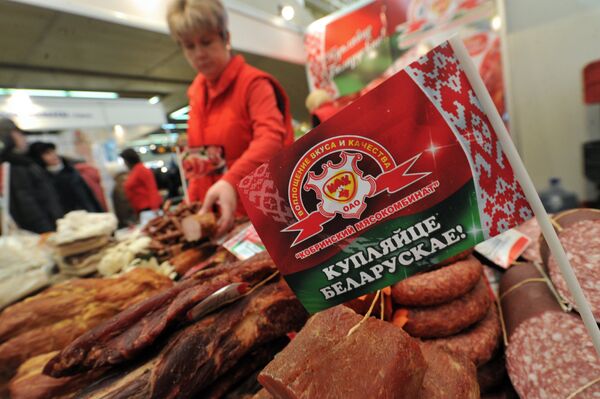MINSK, August 7 (RIA Novosti) – Moscow and Minsk will discuss plans to boost Belarusian food imports to Russia next week in the wake of Russian President Vladimir Putin’s food ban, Belarusian Agriculture Minister Leonid Zayats said Thursday.
“I had a telephone conversation yesterday with the head of [Russia’s agriculture watchdog] Rosselkhoznadzor, Sergei Dankvert. Next week he’s planning on coming to Belarus to discuss issues on the delivery of Belarusian products on the Russian market,” Zayats said.
The Belarusian agriculture minister said his country had ample resources to increase its deliveries of foodstuff within this year.
“We are now gauging our capabilities to expand the volumes that were delivered last year to determine how we could widen the range of exports. I think [we could] add noodles, vegetables, groceries, confectionary products, and, of course, meat and dairy products, which are an already well-represented category on the Russian market,” he said.
On Thursday, Russia unveiled its list of banned agriculture products from the United States and countries that imposed US-backed sanctions against Russia earlier. The one-year ban will target imports of beef, pork, fruits, poultry, cheese, nuts and dairy from the European Union, Canada, Australia and Norway.
Russian Prime Minister Dmitry Medvedev said the counter-measure offered Russian agricultural producers a unique chance to replace imports with homemade foods. The country previously banned food imports on sanitary and public health grounds.
Russia also said it is going to close its airspace for Ukrainian transit flights and consider the rerouting of US and EU flights to Southeast Asia.
At the height of the Ukrainian crisis, the United States imposed several rounds of sanctions against Russian officials, business people and companies and pressed for the allies in the West to follow its lead. The European Union, Canada, and Australia soon caved in to the US sanctions push and drew up their own blacklists.




